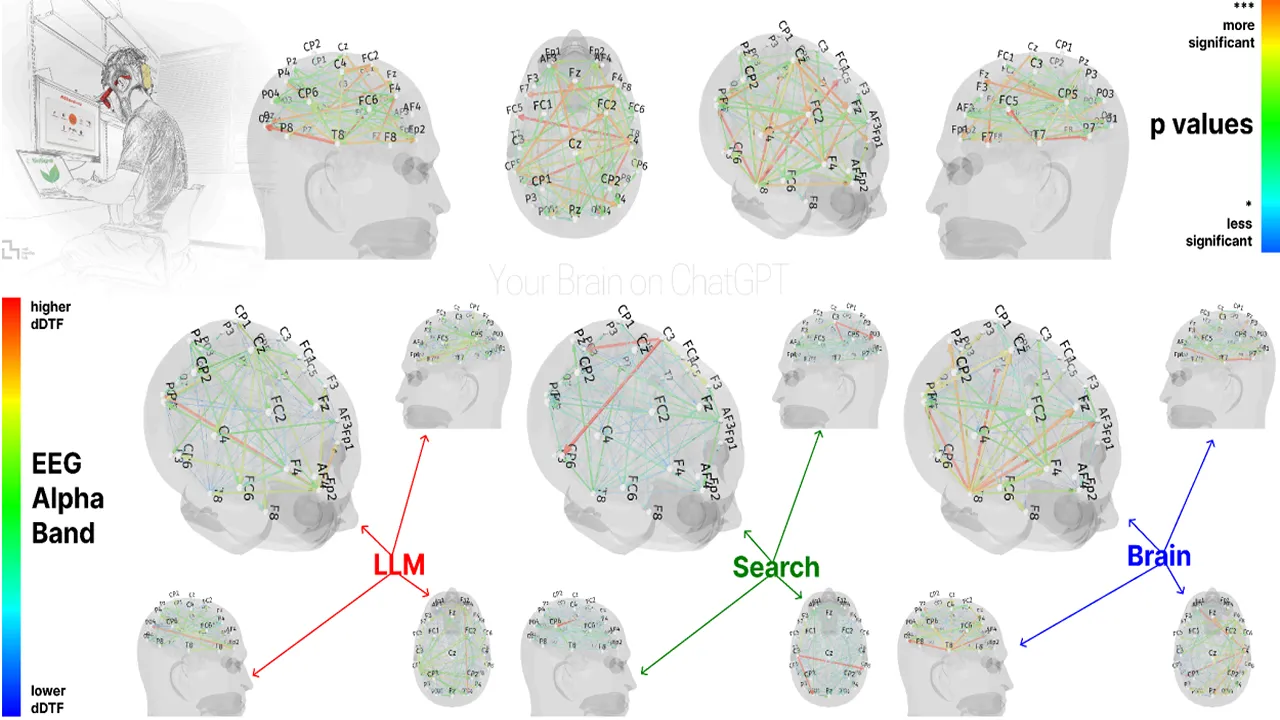A new study from the prestigious MIT Media Lab has provided some of the first empirical evidence that excessive and uncritical use of AI assistants like ChatGPT can negatively affect human cognitive abilities. The paper, titled "Your Brain on ChatGPT," published as a scientific preprint, caused a significant public stir after being widely covered in the media on June 23, 2025. During the experiment, MIT scientists used neuroimaging techniques to analyze brain activity and conducted tests to assess the performance on creative and analytical tasks of individuals who solved them both with and without the help of ChatGPT. The results showed that when using the AI assistant, participants exhibited a noticeable decrease in activity in brain regions responsible for deep information processing, critical thinking, and the generation of new ideas. Furthermore, the study found that participants who heavily relied on AI later demonstrated poorer abilities in information retention and remembering the details of the problem-solving process itself. The authors introduced new terms to describe this effect: "metacognitive laziness" – a reduced tendency to engage in deep, self-reflective thought – and "cognitive debt" – the potential long-term weakening of cognitive skills due to their systematic underuse. This research raises serious questions for the education system and society as a whole about how to properly and balancedly integrate powerful AI tools into our lives so that they complement, rather than replace, human intelligence.
MIT Study: ChatGPT May Cause "Metacognitive Laziness" and Reduce Creativity
